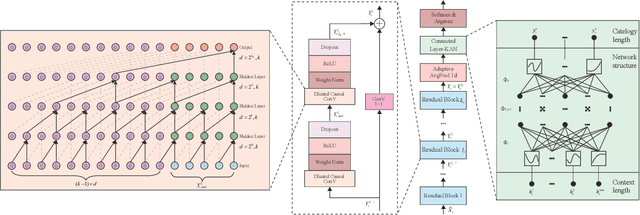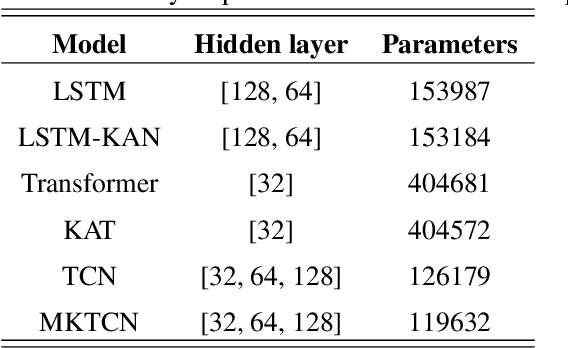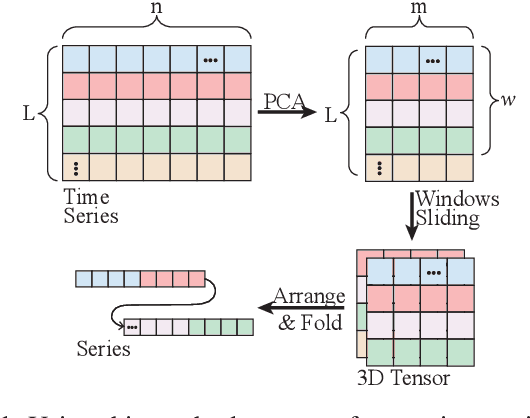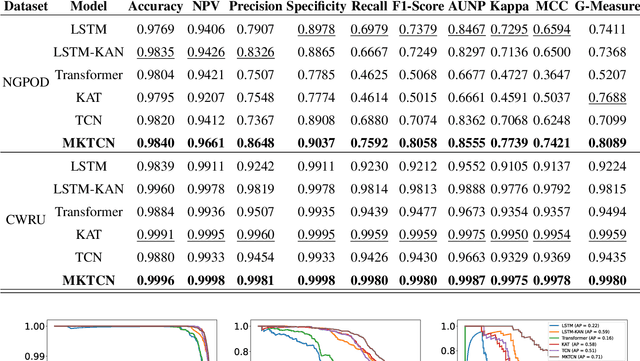Zhonglin Zuo
Early Prediction of Natural Gas Pipeline Leaks Using the MKTCN Model
Nov 09, 2024



Abstract:Natural gas pipeline leaks pose severe risks, leading to substantial economic losses and potential hazards to human safety. In this study, we develop an accurate model for the early prediction of pipeline leaks. To the best of our knowledge, unlike previous anomaly detection, this is the first application to use internal pipeline data for early prediction of leaks. The modeling process addresses two main challenges: long-term dependencies and sample imbalance. First, we introduce a dilated convolution-based prediction model to capture long-term dependencies, as dilated convolution expands the model's receptive field without added computational cost. Second, to mitigate sample imbalance, we propose the MKTCN model, which incorporates the Kolmogorov-Arnold Network as the fully connected layer in a dilated convolution model, enhancing network generalization. Finally, we validate the MKTCN model through extensive experiments on two real-world datasets. Results demonstrate that MKTCN outperforms in generalization and classification, particularly under severe data imbalance, and effectively predicts leaks up to 5000 seconds in advance. Overall, the MKTCN model represents a significant advancement in early pipeline leak prediction, providing robust generalization and improved modeling of the long-term dependencies inherent in multi-dimensional time-series data.
 Add to Chrome
Add to Chrome Add to Firefox
Add to Firefox Add to Edge
Add to Edge